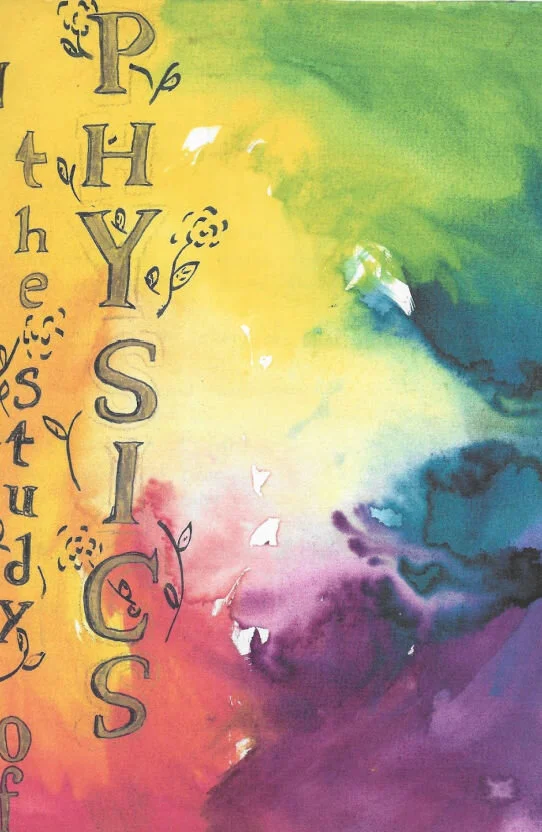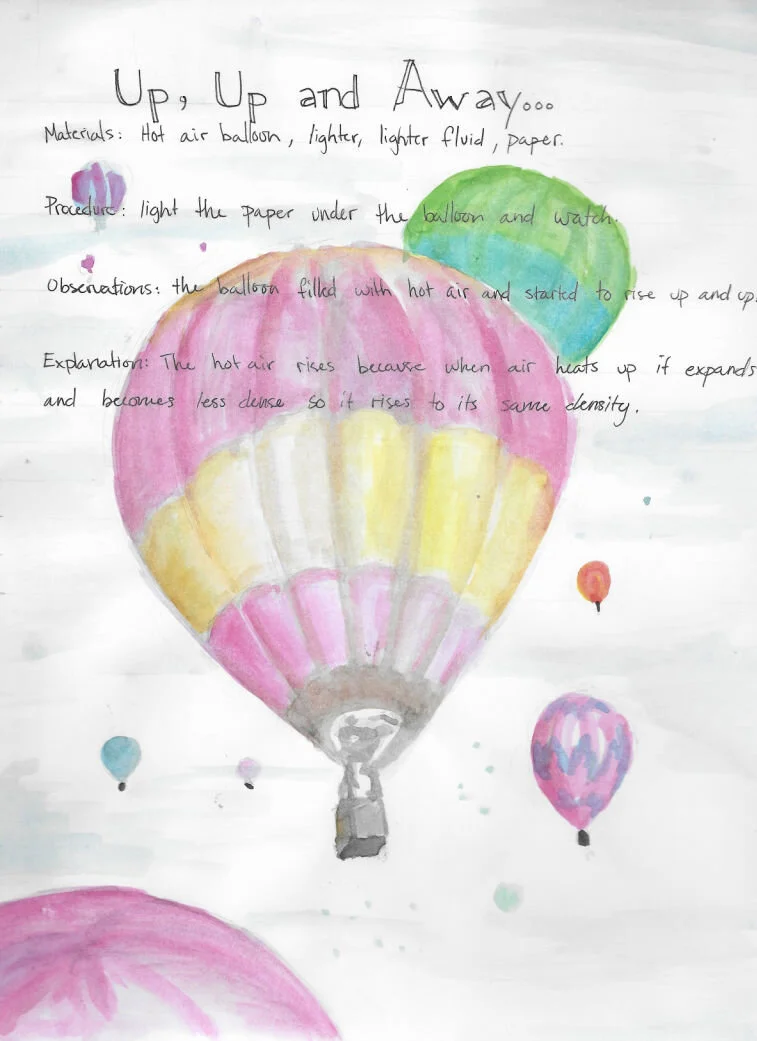Science in the Waldorf Middle School: Starting Something New
Student work from a Waldorf seventh grade physics main lesson book.
Teaching “science” oftentimes sounds a little bit overwhelming, especially to those of us teaching at home, or who haven’t opened a science textbook in a while!
Throw in trying to make science appeal to middle schoolers, and it may sound downright scary to jump in and teach!
Additionally, when one begins to research how science is taught in the traditional Waldorf way, it doesn’t take long to run into big words like “phenomenology,” quotes from Goethe, and long, vague supply lists.
Phew. No wonder we get overwhelmed, right? But no fear!
Teaching science for grades 6-8 really is possible for any educator who is enthusiastic, takes a little time to get organized, and is ready to explore the natural world in a new, exciting, and downright fun way!
(Honestly, this mindset applies to teaching the middle grades in general! To learn more about Waldorf middle school curriculum, click here!)
Though science is woven into the early grades from day one (think: teeter totters in kindergarten, botany in fifth grade, the study of man and animal in fourth grade, the study of agriculture in third, and so on) sixth grade marks the beginning of focused, scientific study. More specifically, we’re talking about physics and chemistry.
There are many reasons for this shift, and with most (all?) things in Waldorf education, it has to do with the development of the child, and where they find themselves around middle school age (12-14 years old).
In Waldorf education, studying science is a colorful, vibrant experience!
A middle schooler is moving out of early childhood, and losing some of their awe and curiosity and inquisitiveness for their surroundings, and are beginning to ask what the natural world has to hold for them. And of course, many children are experiencing puberty, which is a huge shift in their emotional and physical body, to say the least!
So, why science? Studying subjects such as physics and chemistry in middle school rekindles excitement for the natural world through a child’s own observations.
The child is asked to use their senses, and budding logical thinking in new ways to discover laws of the natural world. The scientific demonstrations provide a chance for the child to see the cause and effect of nature right in front of them: “If this…, then that…'' How comforting for a child living in the tumultuous chaos that is so often associated with puberty, middle school, and teenage years!
Teaching science is also a shift for the educator.
Instead of memorizing stories or material, prep for these blocks require gathering of supplies, and practicing demonstrations (which we highly suggest doing early on and with plenty of time to play and prepare!)
It’s hands-on, active, and engaging, and perfect for the middle schooler! Remember that word “phenomenology?” That’s what the educator is curating here: a study of nature’s lawful phenomena in accessible, doable, and fun ways.
Student work from a Waldorf science main lesson book.
Instead of presenting information through story or otherwise in front of the child, the teacher is now demonstrating a law of nature through an experiment, without saying much of anything!
That’s right: the educator uses conversation to guide and moderate, but ultimately, it is the job of the child to discover scientific law.
A teacher may ask “What did you hear? See? Smell? Feel? What did you notice? How do you know that to be true?” and consistently brings the children back to using their concrete observations, while allowing them to find their way to a solid scientific conclusion.
The educator doesn’t do much “telling,” but instead validates, confirms, and encourages a middle schooler’s growing ability to discern and discover nature’s many laws.
It’s exciting stuff, and marks a shift into a new paradigm for both the teacher and student, one where the educator takes on less of a direct role, and cultivates the independence and skills of the student to bloom.
So, are you ready to jump in and teach some science? We promise, with sufficient preparation, and faith in your own and your student’s abilities, you’ll enjoy teaching science more than you ever expected!
Are you interested in bringing Waldorf-inspired science courses to your homeschool curriculum?
Check out our physics and chemistry courses for grades 6-8! Our amazing instructor, Ari Magruder, has created online courses that provide everything you need to bring the joy of discovery and exploration to your student’s educational experience.
About the Author
Ari Magruder is currently the middle school science and math teacher at Sacramento Waldorf School. She also contributed to the teacher education and summer Art of Teaching programs at Rudolf Steiner College for many years.



